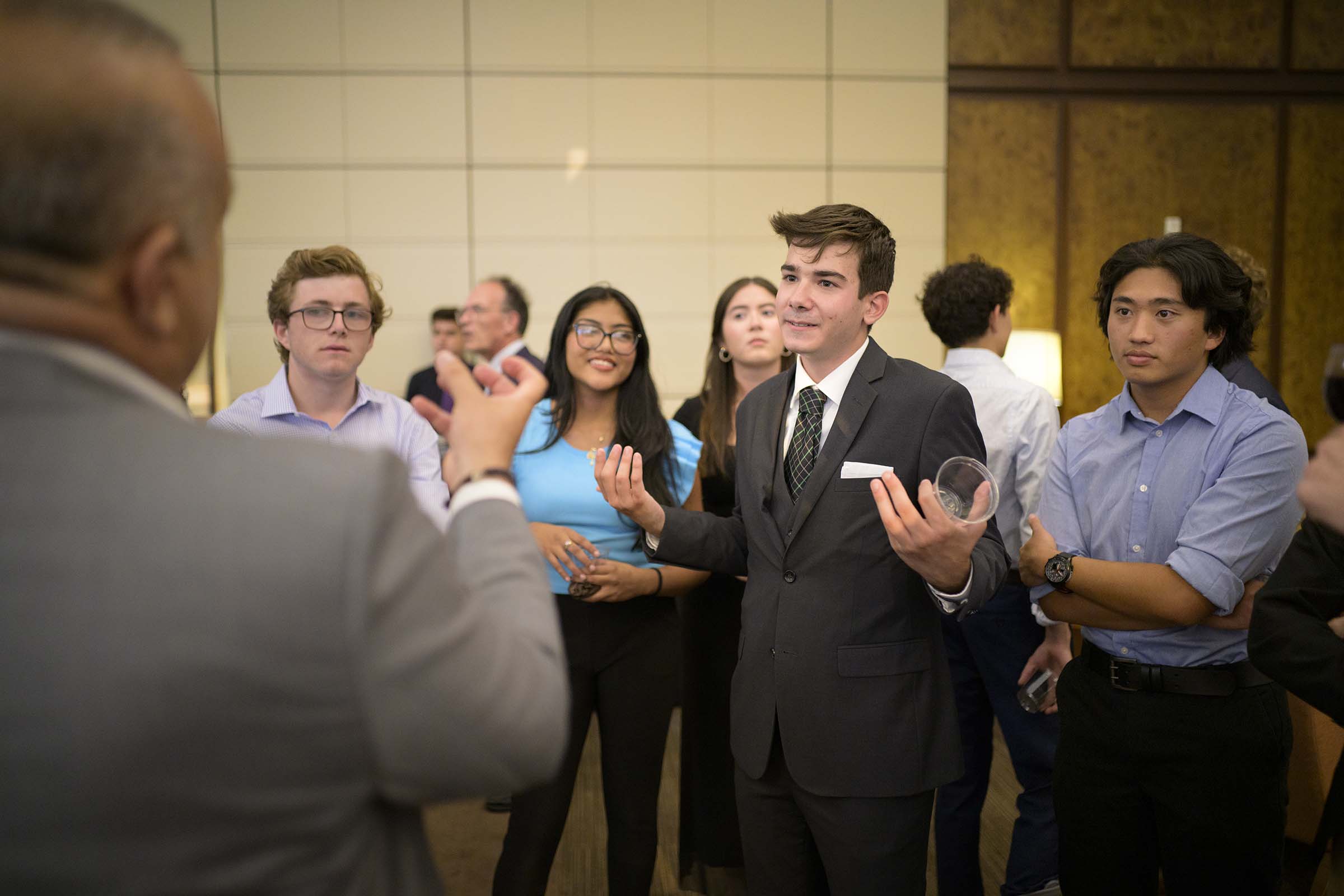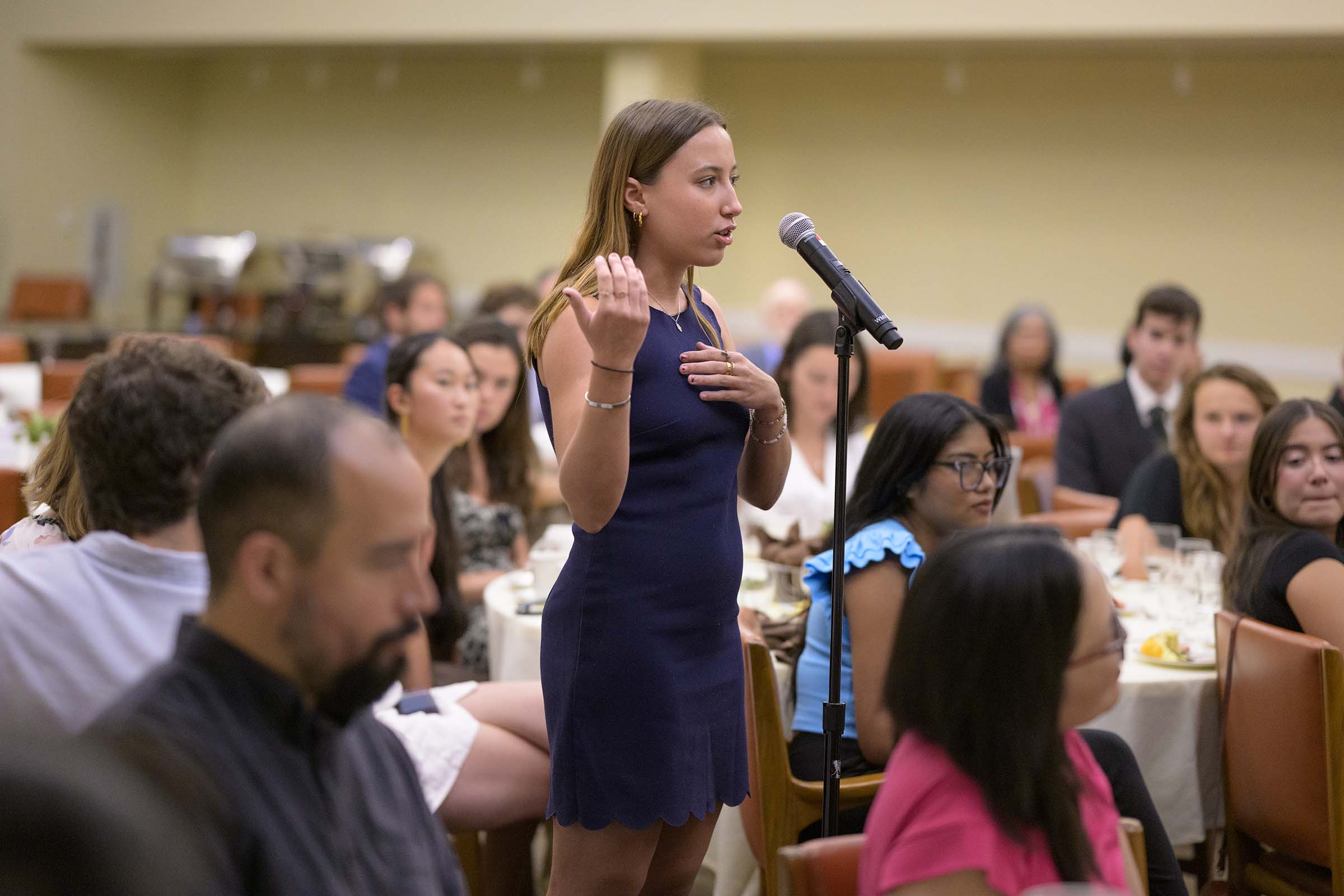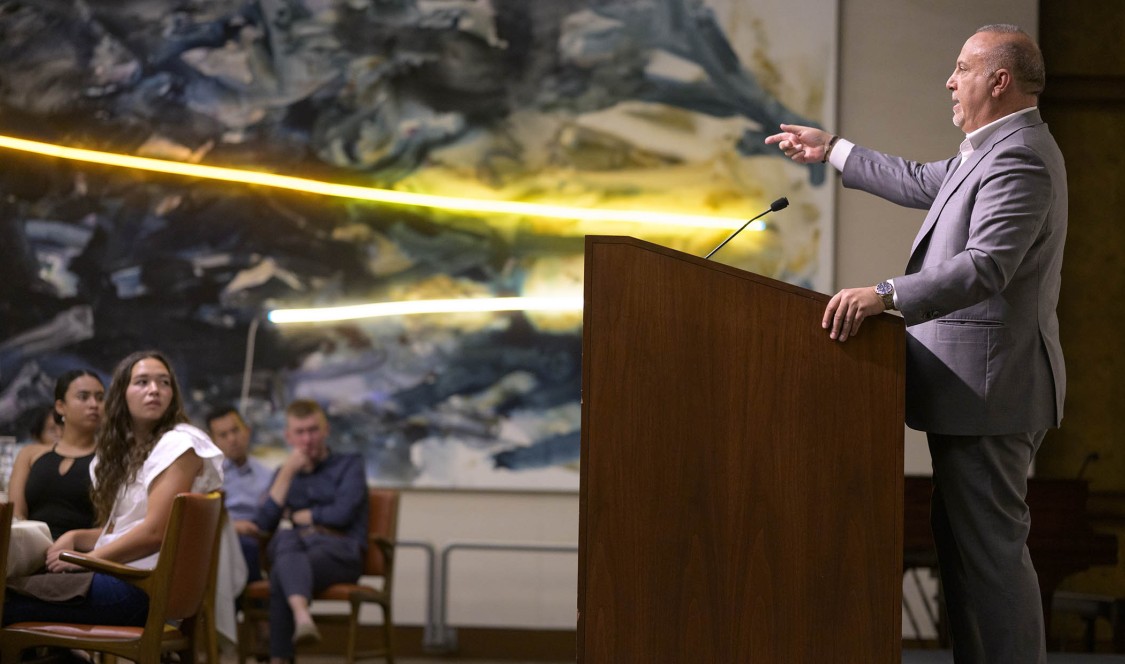Mark your calendars
Upcoming fall highlights from the Ath lineup include:
- The return of the Athenaeum Concert Series, featuring virtuoso violinist YooJin Jang and pianist Sheena Hui ’19 (Sept. 25), plus saxophonist and composer duo Floris van Der Veken and Marlies Hollevoet (Nov. 20), who will perform an original piece commissioned specifically for the Athenaeum.
- Russian dissident journalist, M Gessen (a.k.a. Masha Gessen), a staff writer at The New Yorker; and opinion columnist with The New York Times on Oct. 17;
- “The Race for the White House” election night coverage on Nov. 5;
- Mary Sue Milliken, chef and restaurateur, on Nov. 12; and
- Best-selling novelist Claire Messud (The Emperor's Children) on Nov. 19.
An overview of the Fall 2024 Athenaeum speaker and event programming schedule is available here.
If the first speaker at the Marian Miner Cook Athenaeum this year is any indication, the fall season will be full of engaged discussions, thoughtful questions, and lively back-and-forth conversations—just as it has for more than four decades.
Mike Madrid, a co-founder of the Lincoln Project, a bipartisan political consultant, and Senior Fellow at UC Irvine’s School of Social Ecology, took the podium on Sept. 9, introduced by Ath Fellow Jacob Smagula ’26.
Madrid, who grew up in Ventura County, shared that this was his first time on CMC’s campus, adding how much he enjoyed the conversations with students. “This place is a gem … a crown jewel,” he said.
At the end of the evening, as time was running out, and the conversation was still going, Madrid promised to stay afterward, so everyone could ask their questions, and also follow up on his answers. “Come back later,” he said. “I’ll get to everybody, I promise, as long as my voice holds out.”
He kept that promise.
Speaker quote
With his recently published book, The Latino Century: How America’s Largest Minority Is Transforming Democracy as his starting point, Madrid discussed the growing influence of Latino voters in U.S. politics, noting they comprise the second largest ethnic voting group since 2020, and account for 70% of overall population growth between 2022 and 2023.
Drawing upon three decades of research and campaign experience, Madrid offered an analysis of the coming wave of Latino voters and Latino identity.

“Nearly 40% of all the Latino voters in this country are under the age of 30. And these under-30 voters are not coming as migrants and naturalizing before they’re 30, and then registering to vote. They are U.S.-born, and the fastest-growing segment of the Latino electorate. The whole idea of Latinidad—of Latino identity—of perceptions of ourselves as Latinos, is beginning to change. Are my children, who are fourth generation, whose mother is the daughter of German immigrants, closer to the German immigrant experience than to the Mexican immigrant experience? … Is their Latinidad any different than somebody who migrated here from a South American country and naturalized over the course of the past years? Does anybody have a more legitimate claim to Latino identity, and perhaps most importantly … a more legitimate claim to a political label, a politicized version of that Latinidad?
“Fifteen years from now, half of you guys are going to be mid-career,” he continued. “In 15 years, America will be a non-white majority country for the first time in her history. It’s going to be an extraordinary moment in the American experiment.”

Student question
Gus Mahler ’26, a junior at CMC studying economics and government, asked, as Latino voters become moderate cores of both the Republican and Democratic parties, “Regardless of who wins the coming election, will the push towards moderation persist, or will there be further polarization?”
Madrid answered, “This is largely going to be driven by younger voters, [and] there needs to be a definition, an articulation, of what a Latino agenda is, because, if not, what they immediately do is they’ll cast immigration on top of us and say, ‘That’s the issue.’ Both parties and the media cannot help themselves from doing that. So, until we start demanding as a community … a Latino agenda around economic issues, and demand a multi-ethnic, working-class agenda—whichever party is able to articulate that—is going to be the dominant party for the next generation, and that’s going to require a moderation of both parties.”
Mike Madrid's complete talk is available on CMC's YouTube channel.

